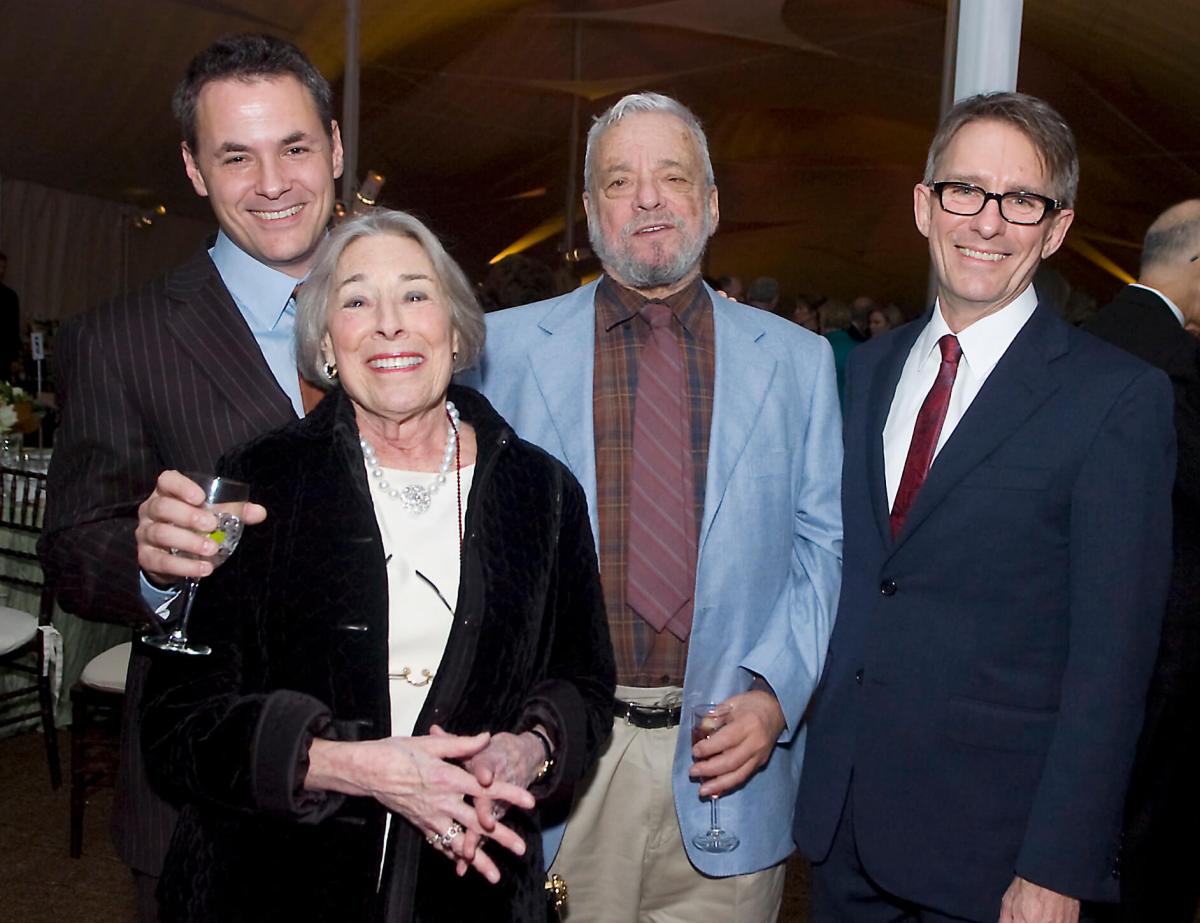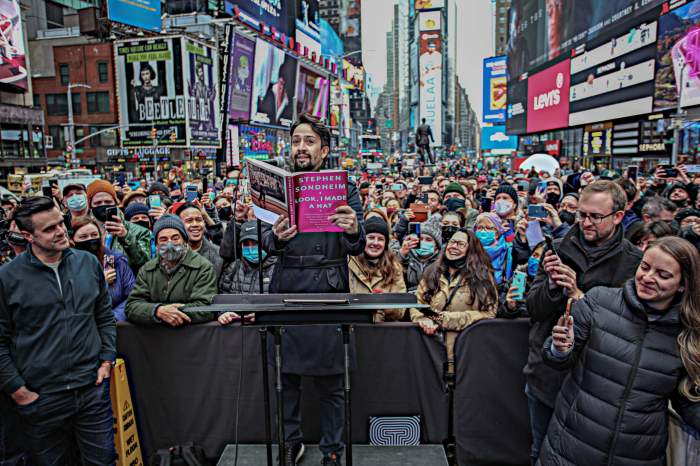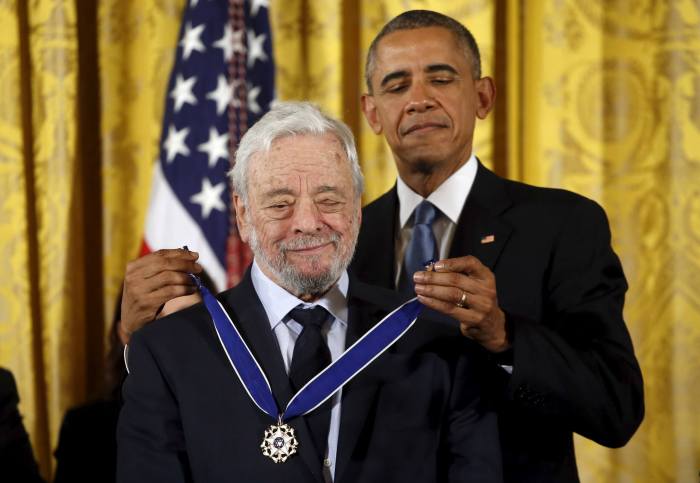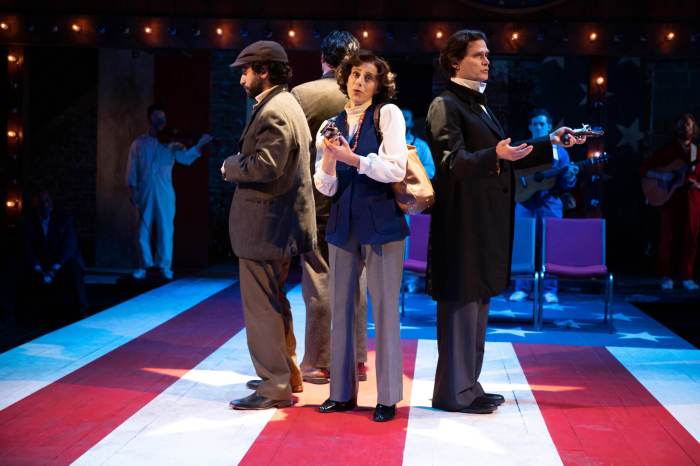The entire New York theater community, still in the process of recovering emotionally and financially from the devastation of the long pandemic shutdown, has now entered an acute state of mourning since last Friday night’s sudden announcement that songwriter Stephen Sondheim, the undisputed champion and genius of contemporary musical theater, had passed away at the age of 91.
Personally speaking, I never got the opportunity to meet Sondheim beyond a five-second encounter after a concert performance in honor of his 75th birthday in 2005. (He needed a playbill, I found him one, and in gratitude he agreed to sign my playbill.) But like so many others, I have deeply treasured his musicals (beginning years ago when I worked on a theater camp production of “Into the Woods”) and have felt shaken and saddened by his death.
There can never be another Stephen Sondheim. Never again can there be someone who possesses such incomparable gifts as a composer, lyricist, and dramatist, such that he is regarded as the Shakespeare of musical theater, whose career also stretched from the mid-century golden age of musical theater (when he was tutored by none other than Oscar Hammerstein II and worked alongside Jerome Robbins, Arthur Laurents, and Leonard Bernstein) into the conceptual and challenging musicals of subsequent decades (when he worked with directors Hal Prince and James Lapine).
While I personally am not a huge fan of a handful of his works (such as “Road Show” and “Passion”), Sondheim’s masterworks certainly include “West Side Story” and “Gypsy” (for which he wrote only lyrics), “Company,” “Follies,” “A Little Night Music,” “Pacific Overtures,” “Sweeney Todd,” “Sunday in the Park with George,” “Into the Woods,” and “Assassins” – and that’s not even including the rollicking musical comedy score of “A Funny Thing Happened On the Way to the Forum.” Like so many others, I could on discussing and analyzing his songs for days. I even once taught a “Sondheim Study” class.
The irony in the loss of Sondheim is the fact that he is virtually everywhere nowadays, both in terms of his influence on contemporary musical theater writers (including Lin-Manuel Miranda, who even translated some of Sondheim’s lyrics into Spanish for a 2009 Broadway revival of “West Side Story”) and in regular revivals and reworkings of his musicals. For as long as I can remember, there has always been at least one revival of a Sondheim musical in New York each and every year.
At this very moment, one can attend the Off-Broadway revival of “Assassins” at Classic Stage Company or the Broadway revival of “Company” – or watch Bradley Whitford play Sondheim himself in the new film adaptation of Jonathan Larson’s “Tick…Tick…Boom!” on Netflix. And starting next week, one can go to the movies to see Stephen Spielberg’s new film adaptation of “West Side Story.” And in a few months, “Into the Woods” will be produced at City Center.
Someone who is unfamiliar with Sondheim (or a fan who wants to take in all of his shows all over again) can easily and instantly stream all of the cast albums and the various pro-shot video recordings and movie adaptations, or read his annotated two-volume collection of lyrics (“Finishing the Hat” and “Look, I Made a Hat”), the new oral history of “Sunday in the Park with George” (“Putting It Together”), Meryle Secrest’s 1999 biography, or the countless other critical commentaries.
Years ago, Sondheim’s work was often derided as highbrow and cold, but that perception changed over time. His shows (most of which were not financially successful during their original Broadway runs) are now revered and constantly revived. Sondheim even entered pop culture in his later years, making appearances on “The Late Show with Stephen Colbert” and “The Simpsons” and being parodied on “Documentary Now!” and “South Park.”
As much as I mourn the loss of Sondheim, I am forever thankful for all that he has left behind. To quote a lyric from “Company,” I, like so many others, feel “sorry-grateful, regretful-happy.”




































